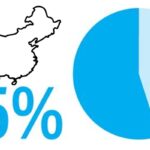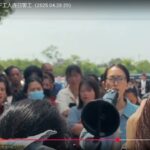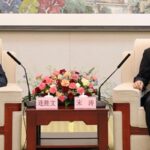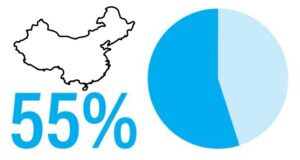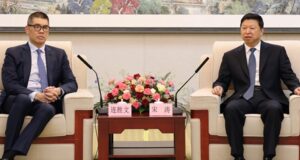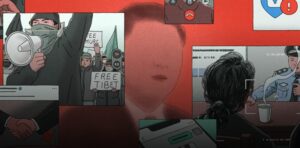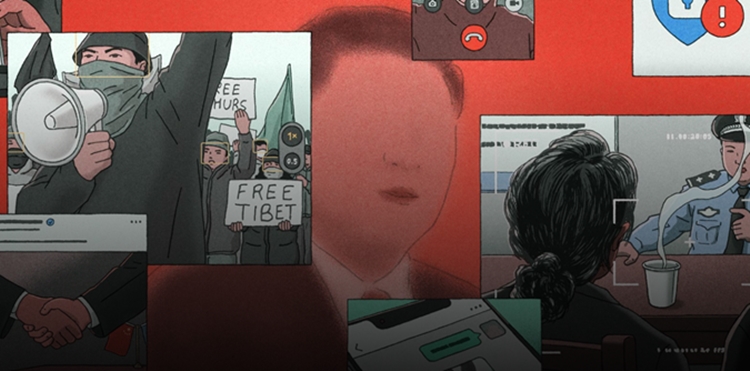
The CCP is still getting away with transnational repression, i.e., various forms of harassment of Chinese nationals living overseas. Many of the targeted are critics of China’s dictatorship (“Inside China’s machinery of repression—and how it crushes dissent around the world,” April 28, 2025, ICIJ).
The harassment ranges from surveillance and spying, smear campaigns, and cyberattacks to freezing of bank accounts, intimidation by officers of Chinese security ministries, and threats and assaults by supporters of the CCP. The Chinese Communist Party targets overseas Chinese directly and through their families back in China. Sometimes Chinese nationals are forcibly repatriated.
What transnational repression?
Spokesmen for the Party say it doesn’t happen. One denialist is Liu Pengyu, a top propagandist at the Chinese Embassy in Washington DC.
Any claims that the Chinese government engages in transnational repression are “fabricated by a handful of countries and organizations to slander China,” the diplomat says. “There is no such thing as ‘reaching beyond borders’ to target so-called dissidents and overseas Chinese.”
Liu’s affected disbelief is thorough. Even the category of “dissidents” isn’t quite real in his book. Or maybe he accepts the fact of such persons but not the dignity of the term or its intimation that resisting tyranny is praiseworthy.
The Party’s rote denials of the evils it commits are never accompanied by a careful review of the evidence, such as the testimony of Chinese nationals.
Of course, nobody rises as high in the Party as Liu Pengyu or takes care to always speak in such a highly regimented CCP-approved manner without having an excellent idea of how the Party works and how it deals with critics and deviationists. Liu is lying. But if he really were just innocently mistaken about whether transnational repression exists, he could profitably consult the new report about it from the International Consortium of Investigative Journalists (ICIJ).
ICIJ and its media partners interviewed 105 people in 23 countries who…have been targeted by Chinese authorities in recent years for criticizing the government’s policies in public and in private.
These individuals include Chinese and Hong Kong political dissidents as well as members of oppressed Uyghur and Tibetan minorities. They have been singled out for advocating for the rights of China’s ethnic minorities and addressing other topics considered taboo by the Chinese Communist Party, or CCP, including Taiwanese and Hong Kong independence and the Falun Gong spiritual movement.
The interviews were part of China Targets, a cross-border investigation led by ICIJ that sheds new light on the vast scale of China’s global repression campaign—and the feckless response of authorities in many democratic nations where those who have been targeted now seek refuge….
“The Communist Party’s essence hasn’t changed,” said Michael Kovrig, a former diplomat from Canada and expert on China’s foreign policy. “What has changed is its capabilities. They can do more, so they do more.”
One of ICIJ’s interviewees is Jiang Shengda, who had been about to address hundreds of demonstrators in Paris while Xi Jinping was in the area when a call came in from his mom in Beijing. He didn’t pick up.
“She was definitely going to convey the [authorities’] message that I shouldn’t be involved in any public activities during Xi Jinping’s visit. And then my thought was: ‘I think it’s something that I have to do.’ ”
Later in the report, we learn that Chinese security officers are now pressuring Jiang to stop his work on a documentary about “Teacher Li,” the Italy-based activist who has “amassed 1.9 million followers on X since he started posting about demonstrations and discontent from within China early in the COVID-19 pandemic.”
“Why did you do that?”
Read about Jiang and about Nuria Zyden, a resident of Ireland who fights for the rights of the Uyghurs. One day she “received a surprise phone call. After 10 years of silence, her mother was on the line.”
Using a WeChat number that her mother said was provided by a local foreign affairs officer in Kashgar, the mother said she had heard Zyden had been at the [World Uyghur Congress] event in Sarajevo.
“Why did you do that?” she asked.
”Why don’t you think about our safety?” chimed in a relative sitting beside her mother.
Zyden insisted she had done nothing wrong and demanded to talk to the officials who she believed had forced the call….
“I’m still struggling,” Zyden said. Part of her says “leave everything,” she said, “but another side says ‘If you are being quiet, they will take more. You have to speak out. You have to fight back.’ ”
Yes, these people exist.
Also see:
ICIJ: “Inside China’s machinery of repression—and how it crushes dissent around the world”
Safeguard Defenders: “Involuntary Returns: China’s covert operation to force ‘fugitives’ overseas back home”
